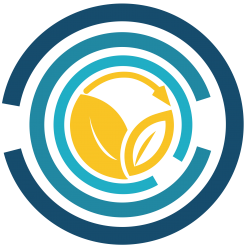“Now more than ever, community college leadership is a data-driven enterprise.”
What are the main functions of CCCAA?
Quality decision making and policy formation escalate the demand for knowledge, even as the resources needed to produce it decline. At CCCAA our first function is to produce actionable knowledge—not for, but in partnership with—our colleagues in community colleges. So, policy-relevant research is one function. But that’s only the first step.
The second step is advocacy. In a rational world, good research would lead to good policy. But policy processes are as political as they are rational, likely more so. We shouldn’t assume that research—no matter how salient the findings—will inform policy. To effect good policy, community college leaders must craft persuasive policy arguments. And they must deploy these arguments diplomatically, because the policy environment is complex and often contentious. Community college leaders understand this. In fact, the American Association of Community Colleges lists communication and advocacy as essential leadership competencies.
In my experience, community college leaders tend to be highly accomplished advocates. They understand the issues, they cultivate good relations with policy makers, and they match their rhetoric with political contexts. Most importantly, they believe in community colleges. While community college leaders know a great deal about advocacy, cutting-edge research in the fields of cognitive science and discourse processes can help them be even more effective advocates. Building from these lines of research, CCCAA will investigate the framing strategies that transform intuitive and experienced advocates into expert policy entrepreneurs.
Are students involved? If so, in what capacity?
First and foremost, CCCAA is an academic center. It provides an opportunity for doctoral researchers to roll up their sleeves and get hands-on experience with real-world data. Our doctoral students bring tremendous experience to their studies, and they are ready to serve as key members of research teams. They may carry out this work in the form of class-related projects, dissertation research, or collaborations with faculty.
For example, in May, VCCS leaders raised significant questions about the free community college movement. It’s a new policy issue, and little is known about its impact on funding, enrollment, and long-term viability. Students in this summer’s section of The Modern Community College will form research teams to scrutinize the experiences of states that have adopted free community college programs. They will then brief VCCS leaders on the findings.
CCCAA provides an opportunity for students to get hands-on experience with policy-related research. It is intended to benefit students in the graduate certificate in community college leadership, the PhD in community college leadership, and the PhD concentration in educational psychology and program evaluation.
Experience tells us that these credentials will help graduates get higher-level administrative jobs. But our students don’t just want jobs; they aspire to careers that make a difference. Toward this end, the faculty are committed to developing principled leaders who reflect critically on policy and practice, recognize tacit assumptions and systemic injustices, and produce knowledge in service of more democratic and just institutions.
CCCAA is the nexus between knowledge production and social change. By participating in research teams organized by CCCAA, our graduate students will analyze real-world data, communicate results using effective framing strategies, and engage directly in the policy process.
How does the work of CCCAA align with graduate programs?
CCCAA provides an opportunity for students to get hands-on experience with policy-related research. It is intended to benefit students in the graduate certificate in community college leadership, the PhD in community college leadership, and the PhD concentration in educational psychology and program evaluation. and the PhD in education -higher education concentration. Graduate learners may be involved through hands-on class activities, dissertation research, or research collaborations with faculty.
Experience tells us that these credentials will help graduates get higher-level administrative jobs. But our students don’t just want jobs; they aspire to careers that make a difference. Toward this end, the faculty are committed to developing principled leaders who reflect critically on policy and practice, recognize tacit assumptions and systemic injustices, and produce knowledge in service of more democratic and just institutions.
CCCAA is the nexus among data analysis, knowledge production, and social change. By participating in research teams organized by CCCAA, our graduate students will analyze real-world data, communicate results using effective framing strategies, and engage directly in the policy process.

